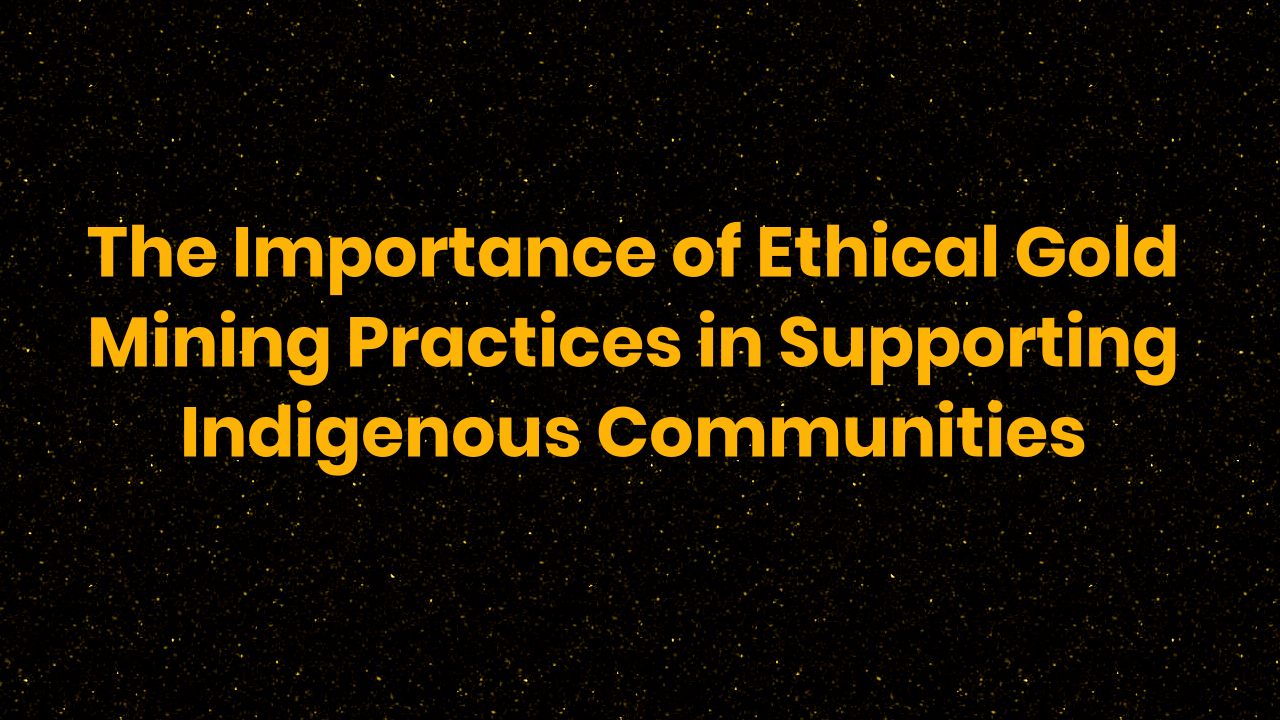
Table of Contents
Introduction: The Significance of Gold in Our Lives
Gold has been a symbol of wealth, beauty, and prestige for centuries. It has been used for jewelry, currency, and investment purposes. However, the process of extracting gold has been accompanied by environmental and social challenges. In recent years, more attention has been given to the unethical practices that have been used in the gold mining industry. As global citizens, we have the responsibility to promote ethical practices and to support indigenous communities that have been impacted by gold mining.
The Dark Side of Gold Mining: Exploitation and Harm to Indigenous Communities
Gold mining has had a devastating impact on many indigenous communities around the world. In many cases, mining companies have exploited the natural resources of indigenous lands without giving back to the communities. The use of toxic chemicals in the mining process has resulted in environmental damage, including water pollution and deforestation. The displacement of indigenous communities from their lands and the destruction of their traditional way of life has been a major concern. In addition, the health of miners and local residents has been compromised due to the lack of safety regulations and protective equipment.
The Importance of Ethical Gold Mining Practices in Supporting Indigenous Communities
The adoption of ethical gold mining practices is crucial for supporting indigenous communities. Ethical practices promote sustainable mining methods, minimize the environmental impact of mining, and provide safe and healthy working conditions for miners. Furthermore, ethical practices help to ensure that mining companies treat indigenous communities with respect, provide fair compensation for the use of their land, and promote local economic development. Ethical mining practices also help to reduce the occurrence of conflicts between mining companies and indigenous communities.
Challenges in Implementing Ethical Gold Mining Practices
Despite the benefits of ethical gold mining practices, there are several challenges to their implementation. Mining companies may not always prioritize ethical practices over profits, and transparency can be lacking in the supply chain. Governments may be unable or unwilling to enforce ethical standards, and corruption can be a major obstacle. In addition, there may be a lack of awareness among consumers about the importance of ethical mining practices, and the cost of implementing such practices may be prohibitive for some mining companies.
Advancements that Promote Ethical Gold Mining Practices
There are many advancements being made that promote ethical gold mining practices. Certification programs, such as the Fairmined and Fairtrade schemes, provide assurance to consumers and stakeholders that ethical standards are being met. Technological advances are also being made to reduce the environmental impact of mining, including the use of cleaner and more efficient machinery. Collaboration between mining companies and indigenous communities is also a key advancement that helps to promote ethical practices and provides mutual benefits.
The Role of Consumers in Supporting Ethical Gold Mining Practices
Consumers can play a significant role in promoting ethical gold mining practices. By choosing to purchase jewelry and other gold products that have been certified as ethically sourced, consumers can support responsible mining practices and help to protect indigenous communities. Consumers can also raise awareness about ethical gold mining practices through social media and other channels, encouraging companies to adopt ethical practices and promoting transparency in supply chains.
Conclusion: Collaborating for a More Sustainable Gold Mining Industry
In conclusion, the impact of gold mining on indigenous communities requires action and collaboration from various stakeholders. Ethical gold mining practices promote sustainable development, protect the environment, and support the rights of indigenous communities. Consumers, mining companies, governments, and certification programs all have a role to play in promoting ethical practices, and collaboration between these stakeholders is key. By working together, we can create a more sustainable and equitable gold mining industry that benefits communities and the environment.





